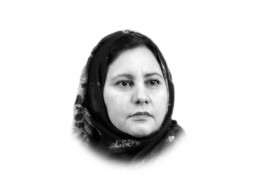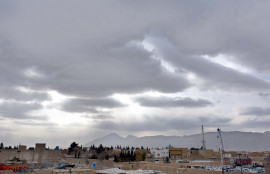
As if the two neighbours, India and Afghanistan, were not belligerent enough, the Iranians also seems to have joined the not too unfamiliar Pakistan-bashing chorus which claims that Pakistan is not doing enough and should do more to prevent the spillover of terrorism across its borders and into the neighbouring countries. The reason is the proliferation of transnational criminal and terrorist activities along the Pakistani borders. No nation is able to secure itself and remain sovereign unless it secures its borders. We know that since long, the level of border enforcement in Pakistan is inadequate. But what should we do to ensure that the activities of non-state actors are limited and restrained?
At the heart of the problem lies the ineptness and total apathy with which the successive military and civilian governments of Pakistan deflected and shelved the most significant issue — the issue of border enforcement. There is no research to quantify how much funds were allocated for border enforcement in the last decade or so. If sufficient funds were allocated, then they clearly have made no meaningful difference in restricting the flow of cross-border terrorism or in the movement of illegal immigrants to and from India, Afghanistan or Iran.
Can we afford to put more boots on ground on the borders? Border fencing, border patrolling and border surveillance are a combination of methods to secure the physical borders of the country. There are always remote and clandestine crossings in the border region. If the non-state actors are so familiar with them, why are our security forces unaware and ignorant about them? We claim to have mastered the ‘surveillance drone technology’ — why is it not being put to use in the border regions? These are all short-term measures. In the long run, we actually need to take the vital decision of which war we want to be ready and prepared to fight.
Terrorism and how to counter it should have been the core driver of our national security strategy and ‘border enforcement’ should have been its one very vital component. Instead, continued defence expenditures on the maintenance and battle worthiness of our conventional war fighting machines are taking a heavy economic toll.
It’s not only Iran that thinks that we have enough intelligence gathering tools, technological edge and combat experience to limit, restrict, restrain and eventually defeat terrorist organisations. Many independent analysts are also of the same opinion and have been questioning the misdirected funds and resources.
Should we, at this stage, be leaning on the shoulders of the Gulf Cooperation Council countries or should we be focusing on balancing and stabilising relations with our neighbours? I think this is a core question, answering which will imply the direction our political, military and foreign policies should take. We must jointly protect each other’s interests. Terrorists based in Pakistan cannot be allowed to cross borders and hurt the interests of our neighbours.
The Iranian outcry is genuine. If the issue is not handled properly it has the potential to create serious misgivings between the two neighbours. Iran is a valued neighbour and a brotherly Islamic country. More than assurances, we need to formulate a ‘joint border security and enforcement policy’. Frontier Corps mans our border posts but if terrorism has to be controlled, our regular forces, sooner than later will have to become a stakeholder in ensuring security along are western border with Afghanistan as well as Iran.
It’s time we seriously viewed the ‘hypocritical gaps’ in what is happening on ground in Pakistan and what our state’s stated position is.
Published in The Express Tribune, April 6th, 2014.
Like Opinion & Editorial on Facebook, follow @ETOpEd on Twitter to receive all updates on all our daily pieces.















COMMENTS
Comments are moderated and generally will be posted if they are on-topic and not abusive.
For more information, please see our Comments FAQ